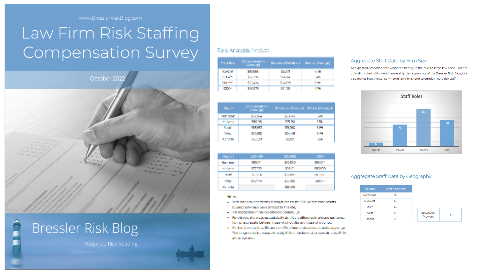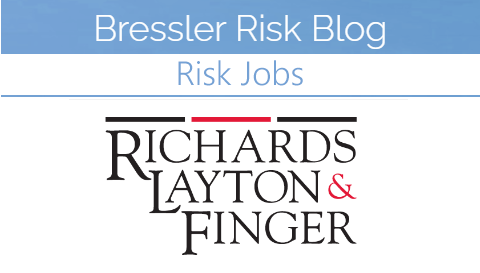BRB Risk Jobs Board — Conflicts and Matter Intake Systems Analyst (Moore & Van Allen)
Posted onOur next sponsored risk job listing comes from Moore & Van Allen, a prominent business and litigation law firm with offices in the Carolinas: “Conflicts and Matter Intake Systems Analyst” —
- This full-time position with our Conflicts team is remote work eligible.
- Duties include
- Conducting conflicts database searches and analyzing results
- Reviewing new client/matter request forms to ensure accuracy
- Maintaining the quality and integrity of the Intapp workflow system for matter intake and the conflict database, spots issues, recommends improvements, modifications and/or upgrades;
- Maintains the quality and integrity of the Intapp Walls ethical screening software
- Manages the upgrades of current software and the implementation of new software to include designing, editing and testing new reports and training staff on new systems.
The successful candidate will possess:
- At least three years of work experience related to legal research (conflicts research preferable).
- Experience with Intapp risk systems + Integration Builder (preferred)
- Experience or understanding of matter management/time and billing systems including Aderant Expert.
- Conceptual understanding of workflow processes and ability to conduct validation testing.
- Experience or demonstrated understanding of data integrations between systems.
For additional detail:
- You can see more details in the specific job posting here
- And read more about professional life and benefits at the firm on their careers page:
- “Moore & Van Allen has built a highly skilled and client-service focused legal and administrative staff, who add greatly to our ability to serve the firm’s clients. As with our legal professionals, paralegals and staff members enjoy a culture that emphasizes teamwork and professionalism.”
And if you’re interested in seeing your firm’s listings here, please feel free to reach out!










